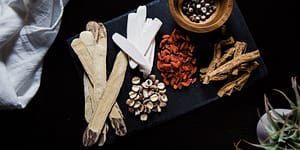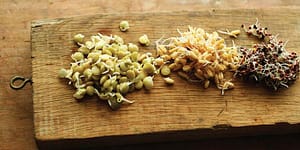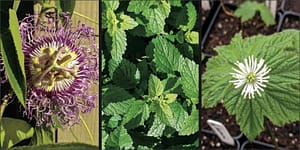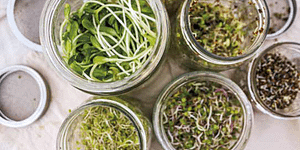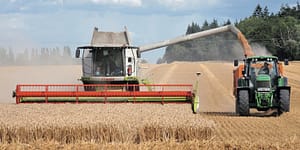The Three Pillars of Immune Health

Staying healthy is at the top of everyone’s to-do lists. But what is the best way to do it? The key is keeping your immune health in check.
While that sounds daunting, there are a lot of small tweaks we can make in our everyday lives to keep our immune system in tip-top shape. If you want to take control of your health and boost your immune system, proper nutrition, exercise, and stress management are three easy ways to start.
The following is an excerpt from The Truth About Covid-19 by Dr. Joseph Mercola and Ronnie Cummins. It has been adapted for the web.
The Nearly Magical Eating Formula to Radically Improve Your Health
There is exciting new research that shows a special type of eating strategy—called time-restricted eating (TRE), sometimes referred to as intermittent fasting—is one of the most profoundly effective strategies to regain your metabolic flexibility.
It promotes insulin sensitivity, decreases insulin resistance, and improves blood sugar management by increasing insulin-mediated glucose uptake rates.1 this is important not only for resolving type 2 diabetes but also high blood pressure and obesity.
It also catalyzes a very powerful cleanup tool of your body called autophagy. This is when your body removes damaged cellular parts and recycles them to make new ones. Without this process actively engaged, your body can be likened to a very old automobile that has not been maintained.

If you’re new to the concept of TRE, consider starting by skipping breakfast and having your lunch and dinner within a six- to eight-hour time frame, say 11 am to 7 pm, making sure you stop eating three hours before going to bed. It’s a powerful tool that can work even in lieu of making other dietary changes. In one study, when 15 men at risk of type 2 diabetes restricted their eating to a nine-hour window, they lowered their mean fasting glucose, regardless of when the eating window commenced.2 It is best to pick times that work for you and your family’s schedule, but typically, the more time you leave between your last meal and your bedtime, the better the benefits.
Another major benefit of TRE is improved mitochondrial function. Most of your cells produce nearly all of their energy via the mitochondria. They’re also responsible for apoptosis (programmed cell death) and act as signaling molecules that help regulate your optimal genetic expression. When your mitochondria are damaged or dysfunctional, not only will your energy reserves decrease, resulting in fatigue and brain fog, but you also become vulnerable to degenerative diseases such as cancer, heart disease, diabetes, and neurodegenerative decay.
Exercise Will Improve Your Immune Function

What’s more, exercising can get you outside in nature, which conveys mental health benefits as well as physical health benefits, as your body synthesizes vitamin D from direct exposure to sunlight, which contributes enormously to immune function. We’ll dive deeper into the benefits of vitamin D for COVID-19 below and in chapter 7.
There are many types of exercise, but my favorite is a type of resistance training called blood flow restriction (BFR) training, which involves slightly restricting arterial flow and obstructing the venous return from the muscle back to the heart. This is done by applying bands to your arms or legs while exercising with very low weights at high repetition.
It’s my favorite largely because it is a nearly perfect strategy for anyone over 50 or 60 to gain muscle mass with minimal risk of injury. You don’t even need weights to practice this technique. This book doesn’t allow us to go into more details, but there are well over 100 pages of instructions on bfr.mercola.com, as well as instructional videos. In my mind, BFR is one of the most powerful strategies to keep yourself healthy in the long term.
Another simple and inexpensive alternative is to use resistance bands— elastic rubber bands or ropes available in different shapes, sizes, and resistance levels. Most brands offer light, medium, and heavy bands that are adjustable, allowing you to be creative with your workouts.
Disease Prevention Through Stress Reduction
A healthy diet and level of physical activity aren’t the only ways you can support your overall health and well-being, and thus how well your body responds to SARS-CoV-2 infection. How you manage stress is also extremely relevant.
Of course, stress levels are especially high for many during this pandemic. Even the conservative CDC recognizes that COVID-19 is escalating feelings of anxiety and stress.6 When you’re stressed, your immune system’s ability to fight off infection is reduced.7 Stress also promotes inflammation.8

Relaxation techniques are an important therapeutic strategy for stress-related diseases.9 One randomized controlled trial concluded that those who exercised or meditated had fewer severe acute respiratory illnesses than those who did neither.10
Meditation, reading, listening to music, engaging in an absorbing hobby, and talking to friends—even if it is across the internet—can all help you relax, as can crossword puzzles, walking outside, and practicing yoga. Whatever engages you fully and takes you out of your head for a while counts as relaxation, so find what works for you.
Also don’t discount the importance of simply turning off the news. Fear is often perpetuated by misinformation that feeds into panic. Make a decision to turn off negative news feeds or change your thoughts surrounding what you see and hear.
You may also want to consider trying Emotional Freedom Techniques (EFT), which can help you clear negative thought patterns in just a few minutes. You can find detailed instructions on my website, Mercola.com, by searching for “EFT.”
Notes
- Andrea Di Francesco et al., “A Time to Fast,” Science 362, no. 6416 (November 16, 2018): 770–75, https://doi.org/10.1126/science.aau2095.
- Amy T. Hutchison et al., “Time-Restricted Feeding Improves Glucose Tolerance in Men at Risk for Type 2 Diabetes: A Randomized Crossover Trial,” Obesity, April 19, 2019, https:// doi.org/10.1002/oby.22449.
- “How to Boost Your Immune System,” Harvard Health Publishing, Harvard Medical School, last updated April 6, 2020, https://www.health.harvard.edu/staying-healthy/how -to-boost-your-immune-system; Ruth Sander, “Exercise Boosts Immune Response,” Nursing Older People 24, no. 6 ( June 29, 2012): 11, https://doi.org/10.7748/nop.24.6.11.s11.
- Josh Barney, “Exercise May Protect Against Deadly Covid-19 Complication, Research Suggests,” UVA Today, April 15, 2020, https://news.virginia.edu/content/exercise-may -protect-against-deadly-covid-19-complication-research-suggests; University of Virginia Health System, “COVID-19: Exercise May Protect Against Deadly Complication,” EurekAlert!, April 15, 2020, https://www.eurekalert.org/pub_releases/2020-04/uovh-cem 041520.php; Zhen Yan and Hanna R. Spaulding, “Extracellular Superoxide Dismutase, A Molecular Transducer of Health Benefits of Exercise,” Redox Biology 32 (May 2020): 101508, https://doir.org/10.1016/j.redox.2020.101508.
- Christopher Weyh, Karsten Krüger, and Barbara Strasser, “Physical Activity and Diet Shape the Immune System During Aging,” Nutrients 12, no. 3 (2020): 622, https://doi.org /10.3390/nu12030622.
- “Coping with Stress,” Centers for Disease Control and Prevention, updated December 11, 2020, https://cdc.gov/coronavirus/2019-ncov/daily-life-coping/managing-stress-anxiety.html.
- K. Agarwal and G. D. Marshall, Jr., “Stress Effects on Immunity and Its Application to Clinical Immunology,” Clinical and Experimental Allergy 31 (2001): 25–31, https://media .gradebuddy.com/documents/1589333/fcfea000-0fb6-4dde-b786-dda6725fd20c.pdf.
- Jennifer N. Morey et al., “Current Directions in Stress and Human Immune Function,” Current Opinion in Psychology 5 (October 2015): 13–17, https://doi.org/10.1016/j.copsyc.2015.03.007.
- Tobias Esch, Gregory L. Fricchione, and George B. Stefano, “The Therapeutic Use of the Relaxation Response in Stress-Related Diseases,” Medical Science Monitor 9, no. 2 (February 2003): RA23–34, https://pubmed.ncbi.nlm.nih.gov/12601303.
- Bruce Barrett et al., “Meditation or Exercise for Preventing Acute Respiratory Infection: A Randomized Controlled Trial,” Annals of Family Medicine 10, no. 4 ( July 2012): 337–46, https://doi.org/10.1370/afm.1376.
Recommended Reads
Recent Articles
Learning how to ask questions that will elicit relevant information is as much an art form as creating an herbal formula. Follow this broad list as a starting point.
Read MoreWant to start your own medicinal herb garden? Passionflower, lemon balm, and goldenseal are great places to begin! These herbs are jam-packed with medicinal properties and easy to grow in a majority of climates.
Read MoreSprouts are easy to cultivate, mature quickly and pack a nutritional punch! You can make nutrient-rich sprouts from all kinds of edible seeds in your kitchen.
Read MoreWhy is modern wheat making us sick? That’s the question posed by author Eli Rogosa in Restoring Heritage Grains. Wheat is the most widely grown crop on our planet, yet industrial breeders have transformed this ancient staff of life into a commodity of yield and profit—witness the increase in gluten intolerance and ‘wheat belly’. Modern…
Read More




